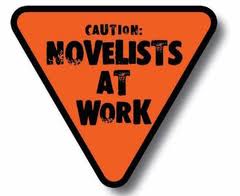Unwanted Heroes was much longer before my editor got his hands on it. A number of chapters were cut because they do not directly move the plot along. They seem to have something in common – my desire to show the many facets of San Francisco. I began sharing these passages with you last Wednesday and would like to share another one here.
There is nothing here that spoils anything in the book – which probably vindicates the editor’s decision to cut them!

They sit in the corner of our coffee shop every day. They are old and somewhat withered, but they exude a mature and vibrant vitality that has a unique influence on our young staff.
He invariably wears a dark blue woolen hat, sturdy glasses and sports a full gray beard. All this partially hides a wrinkled, weather-beaten face and I fancy he could be a retired captain having spent a life at sea. He wears thick sweaters; today’s is dark brown and his training shoes are white, complimenting his beard.
She also sports gray but wavy hair. She wears comfortable corduroy trousers and often removes her Birkenstocks and curls her legs up under her or folded in front of her. She seems to possess an array of hoodies, all zip-fronted. The frames of her eyeglasses are thin and compliments waves of majestic wrinkles that line her face.
What makes this couple special? It is not that they are regulars, not that they always drink non-fat lattes, always ordered with a request from him to ensure the coffees come hot to which she lovingly rolls her eyes. It is not the single scone they order and carefully share.
It is the dynamics between them: the intimacy, the comfort. I watch as they share photographs. They never sit opposite each other with a table between them, but always gravitate to a corner where they sit on the bench that hugs the wall, close together with their backs on the red wood rest.
She has an arm around his shoulders and they enjoy close conversation. Nothing is forced. If there is silence, it is also shared and comfortable. But they are often talking and laughing. I am sure they have their aches and pains, their trials and disappointments, but there is always time to laugh, always time to share a loving gaze.
How do they keep it up? When does it cease to be new and fresh? They have been together forever, have children, grandchildren and maybe great grandchildren, but their focus is always on each other; their relationship is the anchor, the calm in the eye of the storm.
They have reached Budddahood, perfection. And they have achieved this by simply being together, by sharing the photos, the memories, by sharing the moment.
We are a young staff at The Daily Grind, all single, constantly vigil as we seek our own soul mates. We all observe this couple from behind the counter or when we clean around the café. We know their names and they remember snippets of our lives that they allow us to share with them. We are all silently asking the question.
We are their children, their grandchildren. We can be because they have enough space to share a bit of their Buddahood with every soul they come into contact with.
* * * *

It was a rainy day in January. Still no sign, no indication of Spring around the corner. Twain’s coldest winter was a summer in San Francisco, but he never braved a winter by the bay. The wimp! It is a tough time of the year. Christmas is over, gone long enough for people to return to their resilient regimes, but not long enough to forget the season of goodwill. We seek a glint in each other’s eyes, but they are glazed over now. Eyes open, but shut.
The morning rush is behind us now and the place is completely empty of customers. I wrestle to clean an intricate and generally forgotten part of the Beast – our nickname for the Italian coffee machine that Mr. Tzu is extremely proud of. When he imported it from the old country, it was the only one of its kind in the New World.
I am so absorbed in my struggle that I am not aware of the door opening. Tabitha elbows me hard and I bang my head as I rise sharply. My pain is soon forgotten and the entire staff are now frozen to their spots and watching her.
She approaches the counter slowly, cautiously. Her head is bowed; she is defeated. Tabitha walks around and opens her arms to hug her. No words; it is clear. Their absence had been remarked upon over the last few days, but the inclement weather was assumed to be the culprit.
Now we know the weather is not to blame. I clear my throat. Even the most experienced barista is never experienced enough, but the responsibility falls to me.
“A non-fat latte, extra hot?”
She nods. Now cones the hardest part. Will she or won’t she? She just takes the latte and shuffles, yes shuffles, to a table in the middle. It is not the one in the corner and it should not be. It was a brave enough act just to enter the store.
She sits and for a moment gazes over to the corner. The she picks up her coffee and sips. Returning the cup to the table, she reaches into a bag and pulls out a book to read. I see a slight shake in her grip that I had never noticed before.
Tabitha takes off her apron and makes herself a coffee. Usually, she would ask me if she could take a break, even this close to break time. But she takes her coffee and a plate, on which she puts a scone and two forks. Then she walks over and sits opposite the old woman.
Words are exchanged and the old woman briefly smiles. They begin eating the scone together and Tabitha is talking. At one point they both go to take a piece of the scone and their forks clash. Her head suddenly sinks. This is the difference. She would always be able to find someone to share a scone with, but after all these years the forks had been synchronized. The synchronicity has gone, forever.
If you meet the Buddha on the road, strike him down. We are deep in the grasps of winter and, even in this most beautiful of cities, it is cold and lonely. Even here, the Buddha has not tarried.
 I walk over to the table and pull up a chair. I take her hand in both of mine and squeeze gently. I swallow, not sure what to say. I stammer:
I walk over to the table and pull up a chair. I take her hand in both of mine and squeeze gently. I swallow, not sure what to say. I stammer:
“My grandparents were together for more than sixty years. They were very different from you. She always seemed to be telling him off and criticizing him. He had an arsenal of cutting responses. My sister once asked my mother why they stayed together all this time if they couldn’t get on.
“My mother replied that it was just their way of communicating, that they had stood by each other through many crises and upheavals. She told us that they were really very much in love. I tried to understand this, but even as a boy I knew that theirs was not the relationship I would seek.
“When my grandfather died, my grandmother put on a brave face for a few months. But then she withered away, before our very eyes. As she lay on her deathbed, she told my mother not to mourn her as she was going to join my grandfather and was looking forward to seeing him. She was going to let him have it for leaving her behind after all these years. “But it seemed wrong to us. We were kids. It seemed like she was leaving us, leaving her daughters and grandchildren and all those she had touched in her charity work at the church.
“I guess she couldn’t survive without him. I’m just trying to tell you that you have a lot of people here who love you and still need you; your family, friends, us.”
She smiles and squeezes my hand. Then she pulls up her sleeve to reveal her forearm. Her voice takes on a steelier edge.
“I will survive. It is tattooed onto my body, engraved into my psyche. I can do nothing else, for it would betray the memories of my people. We are survivors.”
Then she covers her arm back up and pats my hand.
“And you have a shop to take care of, customers and a lovely staff.” She forces a tight smile. “And this coffee wasn’t hot enough!”

Gloria Lyon, San Francisco resident.
—————————————————————————————————–
Alon Shalev writes social justice-themed novels and YA epic fantasy. He swears there is a connection. His latest books include: Unwanted Heroes and At The Walls Of Galbrieth. Alon tweets at @alonshalevsf and @elfwriter.
Posted in
General: Me - A Left Coast Author,
Meet the Author,
San Francisco and tagged
A Gardener's Tale,
Alon Shalev,
At The Walls of Galbrieth,
barista,
Birkenstocks,
Budddahood,
buddha,
Christmas,
coffee shop,
Gloria Lyon,
Holocaust,
Mark Twain,
New World,
non-fat lattes,
novels,
San Francisco,
social justice,
survivor,
tattoo,
The Accidental Activist,
The Daily Grind,
The First Decree,
Unwanted Heroes,
YA Epic Fantasy

























America: July 4th For All
I realize that I, like many of my fellow social commentators, spend a lot of time highlighting what is wrong in this country. This is important and even patriotic because it feeds from a desire to create a better and more just society. Today, however, should not be such a day. Allow me to share a post I wrote for a previous July 4th and in the afterglow of the historic Supreme Court human rights decision just a week ago.
I am sitting in my local coffee shop and two men have just walked in together. They are deep in conversation and I see that one insists on paying for both coffees while the other protests and then gratefully accepts. I sense they exchange this ritual regularly. One man is black and the other is white. This shouldn’t stand out to me living in the People’s Republic of Berkeley, but it does.
These two men, though they walk straight and fluidly, are both old. They must be in their late 70’s, and I wouldn’t be surprised if they were in their 80’s. They grew up in a different time, another age, when this scene would have drawn everyone’s attention in the coffee shop. Now, I suspect, it is just me.
I am writing this post a couple of days before the 4th of July. I am still not a citizen of the US, but I feel a part of this society because I believe in what it stands for: freedom and democracy for all. I know our country is not perfect, but we are moving forward. I know that not everyone is on board, or swimming in the same direction, but I believe there is a determined majority who embrace these principles. Jewish proverbs teach us that “It is not for us to finish the task, but neither are we free to desist from it.”
I’ll leave you with Janis Ian who spells it out in black and white. Happy 4th everyone.
—————————————————————————————————–
Alon Shalev writes social justice-themed novels and YA epic fantasy. He swears there is a connection. His latest books include: Unwanted Heroes and the 2013 Eric Hoffer Book Award for YA – At The Walls Of Galbrieth. Alon tweets at @alonshalevsf and @elfwriter. For more about the author, check out his website.
Share this: